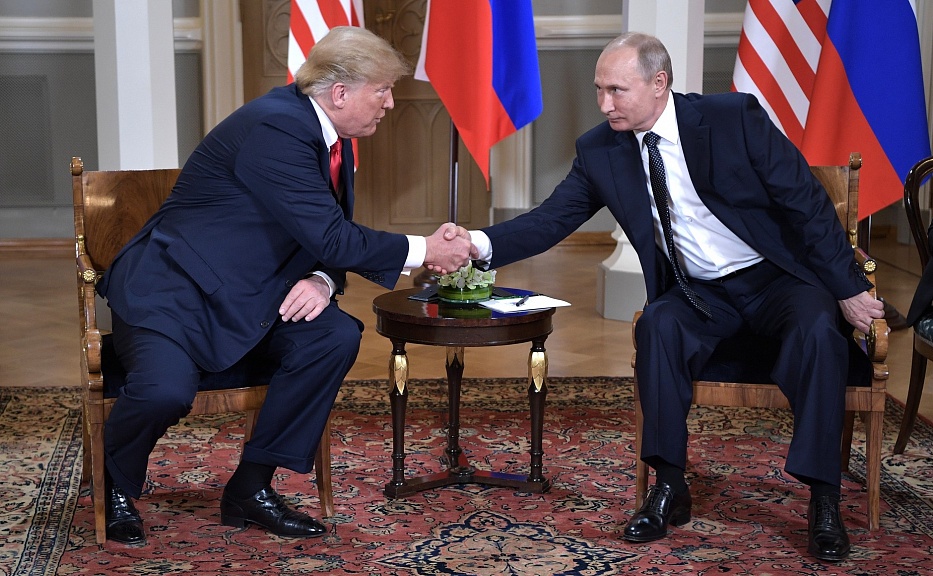
Russian-American relations are struggling through their most difficult period since the end of the Сold war. The former Administration of President Obama did everything possible to strain them. Under the pretext of the Ukrainian crisis it made a number of confrontational steps. It shut down most channels of cooperation including the Presidential Commission (21 working groups). It imposed several waves of sanctions and restrictions on exports to Russia. It expanded measures of military and political deterrence. It tried to isolate us on the global arena. It launched an anti-Russian propaganda campaign.
The pursuit of normalizing bilateral relations initiated by the Trump Administration met immediate stiff resistance from Russophobic elites in the U.S., who without evidence blame our country for an alleged meddling in the U.S. election process. All this is further contaminating the spirit of Russian-American bilateral ties.
Such negative dynamics meet neither Russian, nor U.S. interests. They also don’t address the goal of ensuring international peace and security, supporting strategic stability consistent with special responsibilities of our countries. Russia will never back down from its legitimate interests and we accept cooperation as long as it is based on principles of equality, mutual respect and non-interference in each other’s domestic affairs. Nevertheless, we have always been and are still ready for an open and frank dialogue with the U.S. on all bilateral and international issues.
Despite the challenges in our relations, the high-level contacts remain. In July 2017, the first meeting between President of the Russian Federation Vladimir Putin and President of the United States of America Donald Trump took place on the sidelines of the G-20 Summit in Hamburg. Several telephone conversations between the Presidents were held prior to their meeting. In April, 2017, Vladimir Putin met with the Secretary of State Rex Tillerson. In his turn, Russian Foreign Minister Sergei Lavrov met with U.S. President Donald Trump in Washington in May, 2017. Several meetings and telephone conversations were also held between Sergei Lavrov and Rex Tillerson.
Implementation of several dozen intergovernmental and interdepartmental Russian-American agreements in various areas still continues. One of them is the 2010 Treaty on Measures for the Further Reduction and Limitation of Strategic Offensive Arms, which plays an important role in ensuring global strategic stability.
Should the Administration of President Trump really be ready to seek mutual approaches to resolving common problems, we will respond with reciprocity. We are ready to work together in the areas of shared Russian-American interest. It includes the fight against terrorism, non-proliferation of weapons of mass destruction, regional conflict resolution, facilitation of economic growth, climate change and many others. Such cooperation could be beneficial not only to the Russians and the Americans, but to the entire global community.
At the same time we will continue to push the U.S. authorities to address the bilateral problems caused by Washington over the recent years. We strive to end the hunt for the Russian citizens in third countries by the U.S. law enforcement agencies. We will continue to devote special attention to protecting the rights of the adopted children from Russia, who have been abused by American foster parents.
